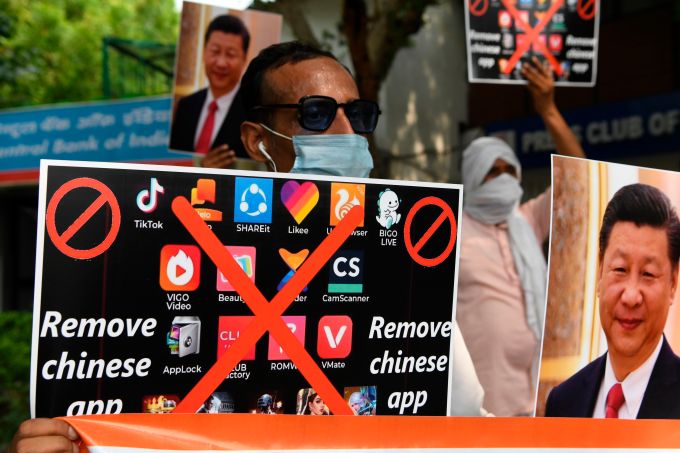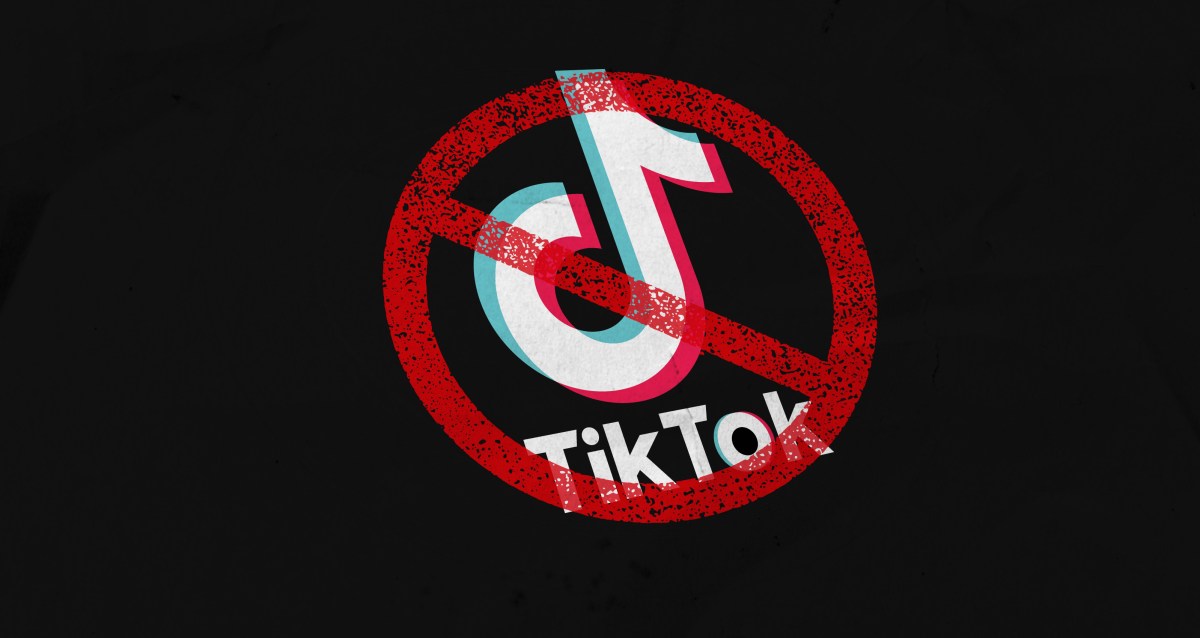On April 24, U.S. President Joe Biden signed a bill that could result in the ban of TikTok if its owner ByteDance fails to sell the app.
The bill stipulates that ByteDance must reach a deal within nine months, with a possible 90-day extension for finalization. Failure to meet the deadline will lead to the removal of the app from app stores in the U.S.
TikTok plans to challenge this decision in court, anticipating a lengthy legal battle. However, several countries have already banned the app, impacting ByteDance’s operations, creators, and related startups in the creator economy.
Here’s a glimpse of how these bans are unfolding in other markets.
- India: In June 2020, India, one of the largest consumer markets globally, banned TikTok and several other Chinese apps citing national security concerns.

Members of the Working Journalist of India demonstrating against Chinese apps in New Delhi in June 2020. Image source: AFP via Getty Images
- Afghanistan: In 2022, the Taliban banned TikTok and PUBG, citing concerns about misleading the youth. Many creators in the country resorted to VPNs to continue making videos on TikTok.
- Uzbekistan: The country imposed restrictions on TikTok’s usage in July 2021 and considered a complete ban in 2022 due to VPN usage.
- Senegal: In August 2023, Senegal suspended TikTok following political unrest, demanding ByteDance to develop a mechanism for authorities to delete accounts.
- Somalia: TikTok was banned in Somalia for spreading misinformation and disturbing content, alongside Telegram and 1xBet.
- Kyrgyzstan: In August 2023, Kyrgyz authorities barred TikTok, citing potential harm to children’s well-being.
- Nepal: Nepal banned TikTok in November 2023, concerned about social harmony disruption and increasing cybercrime incidents.
- Other bans: Several countries like Iran, Canada, the UK, Belgium, the EU, New Zealand, and Australia have restricted TikTok on official devices.
Impact of the bans
Reports have highlighted the repercussions of TikTok bans on creators and businesses that relied on the platform for visibility and income.
India’s ban on TikTok prompted Instagram to introduce Reels, Meta to launch Reels in the U.S., and YouTube to unveil Shorts in India. Additionally, local short video apps emerged as alternatives.
After the ban, developers in Nepal introduced a TikTok rival called Ramailo in November 2023, albeit briefly.
Creators have faced challenges distributing their content across multiple platforms, potentially losing audience engagement due to varying algorithms and platform preferences.
ByteDance had to reevaluate its operations post the India ban, culminating in the shutdown of Resso, their music streaming service in India.
The ban of platforms like TikTok has stirred debates among digital rights activists regarding free speech restrictions, echoing potential legal battles in the U.S.
Further, India’s ban on TikTok set a precedent for addressing apps with questionable practices, urging other nations, including the U.S., to follow suit.


